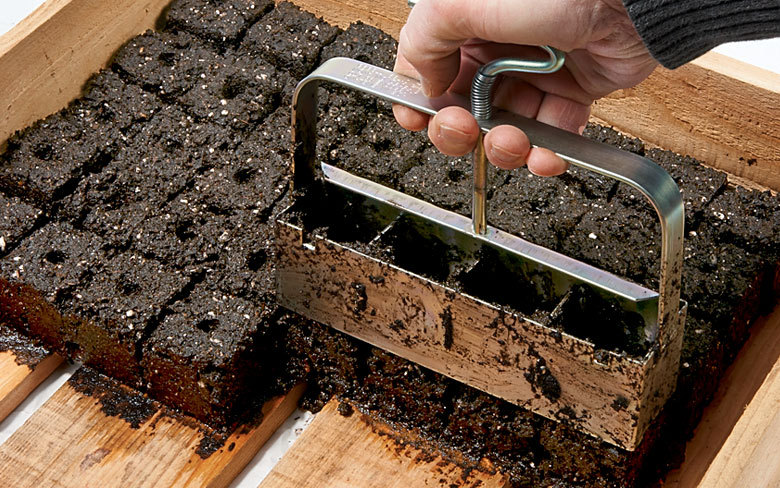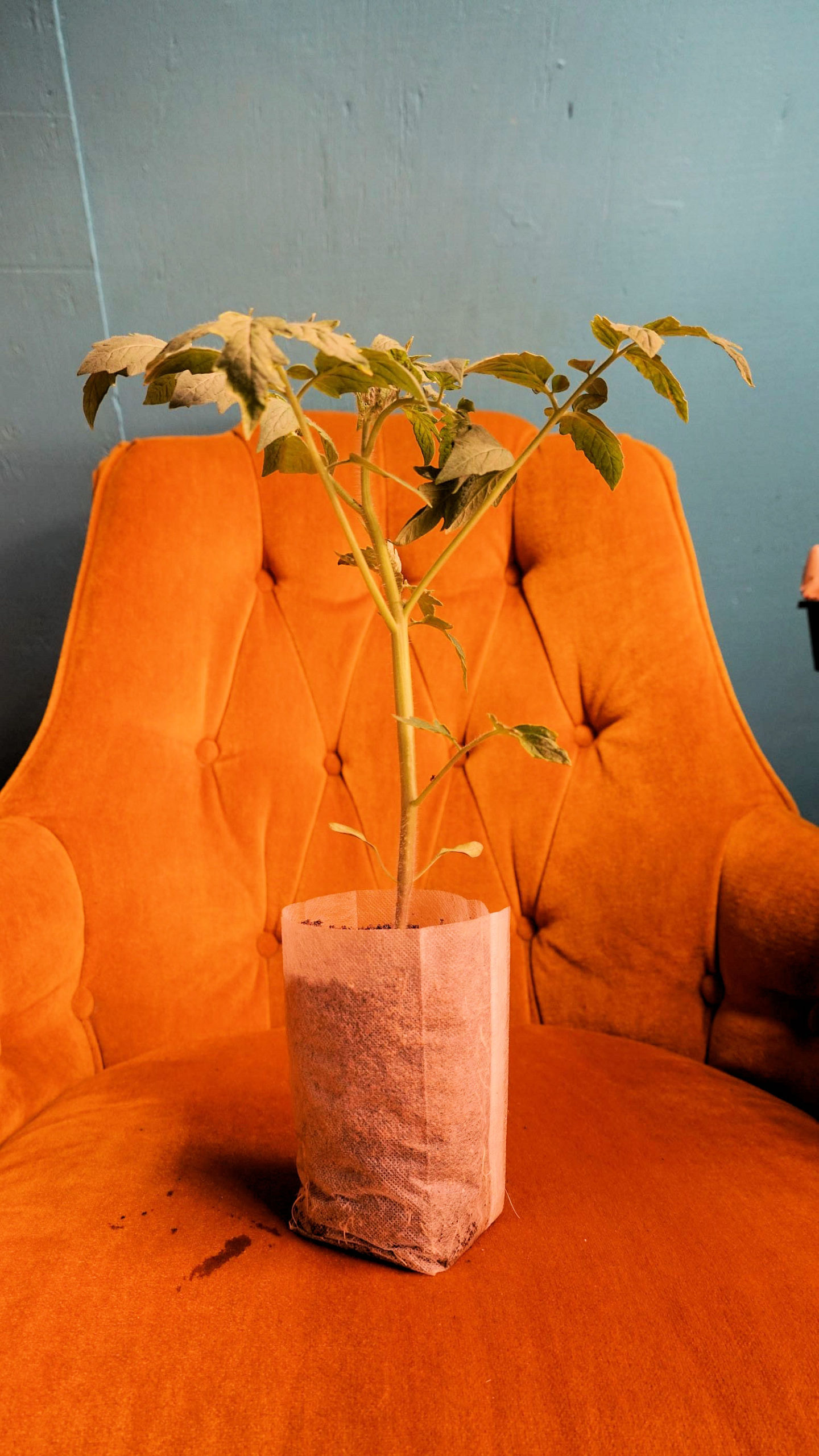After many years in the food service business, I felt strongly about reducing waste. I owned and operated Bacchus cafe for 5 years, and in that time, we composted, recycled, and created a ‘No Single Use’ cup program. Bacchus Cafe is part of a bookstore, and we would receive all the discarded books. I made a system of folding the pages to create cuffs for mason jars.
Now here I am, starting a farm, growing plants, and bringing those values forward into the next endeavor. I still feel that there are endless ways to up-cycle, reuse, and avoid using single-use plastics.
Let me introduce to you my first step to reducing waste on our farm!
Soil blockers!! This tool creates little compact blocks of soil. All the soil blocks are free-standing, are planted with seeds, and are placed in reusable trays.
After a couple of weeks, every one of these beautiful little seedlings needs to be up-potted. I have bought a large amount of non-woven compostable cloth bags. So far, I am happy with these bags. However, they cost money, and I don’t want to support the production of another product.
After some research, I stumbled onto paper pots. After years of rolling book pages onto mason jars, this only made sense. Making paper pots is similar to the coffee cup cuffs but is a heap simpler! I am now digging through the recycling bins at the post office, looking for flyers, and then rolling them up on a wine bottle. It a good thing I don’t care to drink cause this might get messy 🙂
This blog is not about how to make these paper pots but rather why.
Over the years of buying plants, I have had stacks of plastic pots—some better quality than others. The thing was that I never used them, and they got beat-up and broken over time, and I just recycled them.
One of the best things about these paper pots is that they compost. The fact that the pot composts means that there is less of a chance for transplant shock. You don’t have to pull your plant out of its comfortable home. Now you simply plant it in the ground and let the plant keep growing.
Starting this year and moving forward, we will be providing all our transplants in compostable pots. On the farm, we will be doing the same until we invest in reusable planters. Our mission is to make a difference in the way we do things and the impact we have on our world and in our community.

